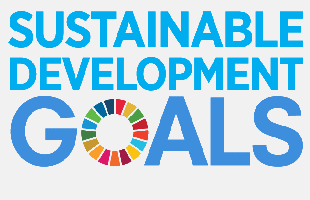Outbreaks and emergencies
Emergencies » Haiti hurricane » Nigeria crisis » South Sudan crisis » Yellow fever » Zika virus and complications »Election of Director-General
Highlights
-
Monitoring Visualization Tool for the Global Action Plan for Pneumonia and Diarrhoea
This tool presents data on 24 key indicators related to the protection, prevention and treatment of diarrhoea and pneumonia in children under five years of age and two indicators on mortality due to the two diseases. The tool also enables access to country-specific profiles to see the progress made by 136 low- and middle-income countries in averting childhood diarrhoea and pneumonia deaths.
-
e-Learning Course on Health Financing Policy for universal health coverage (UHC)
November 2016 – This is a foundational course, targeting participants of various levels of experience and expertise. It is for free and available to anyone interested. Subjects covered include revenue raising, pooling revenues, purchasing, and benefit package design.
-
WHO condemns reported attacks using ambulances as weapons targeting civilians in Tikrit and Samarra, Iraq
November 2016 – WHO received reports of suicide bombers driving ambulances, killing more than 20 people and injuring dozens more at a checkpoint in Tikrit and a car park in Samarra. The reported use of medical vehicles as weapons threatens the ability to deliver health care and urgent medical services.
-
African leaders recognize importance of preventing and managing health emergencies on One Health Day
November 2016 – On the inaugural One Health Day, the World Health Organization (WHO) is calling attention to the importance of using the One Health approach in order to more successfully prevent and manage public health emergencies and threats. One Health is an approach to designing health systems and services in ways that account for the link between human, animal and environmental health.
What we do
Health emergencies programme
WHO Health Emergencies Programme delivers rapid, predictable, and comprehensive support to countries and communities as they prepare for, face or recover from emergencies caused by any type of hazard to human health, whether disease outbreaks, natural or man-made disasters or conflicts.
Zika virus and complications
After a spike in cases of microcephaly and Guillain-Barré syndrome associated with Zika virus, WHO declared a public health emergency.
Commentaries
Disease outbreak news
-
Middle East respiratory syndrome coronavirus (MERS-CoV) – Saudi Arabia
11 November 2016 -
Middle East respiratory syndrome coronavirus (MERS-CoV) – Saudi Arabia
31 October 2016 -
Monkeypox in Central African Republic
13 October 2016 -
Wild polio and vaccine derived polio in Nigeria
6 October 2016
Events
-
World Antibiotic Awareness Week
14 to 20 November 2016 -
9th Global Conference on Health Promotion
21–24 November 2016 -
International Symposium on Sustainable Food Systems for Healthy Diets and Improved Nutrition
1-2 December 2016
Tweets from WHO
Tweets about "from:who"Stories from countries
-
Information on health services essential for humanitarian response in Borno State, Nigeria
10 November 2016 -
WHO donates emergency medical supplies for the response in Borno State, Nigeria
9 November 2016 -
WHO and partners support measles vaccination in Borno State, Nigeria
9 November 2016 -
From a warehouse in Dubai to a hospital in Haiti: a journey of lifesaving supplies
25 October 2016











